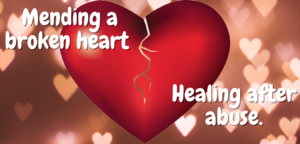
You will likely mourn the loss of an abusive partner in your life and that is ok. You may feel conflicted about missing someone who has abused you. Please remember that it is perfectly normal! Many survivors of domestic violence are trauma bonded to their partners. This makes it all the more difficult to move on.
So, what does it take to heal from the trauma of an abusive relationship at the same time healing your heart from a breakup? The following tips are just a few ways to help you break that bond and heal from trauma and heartache.
- No Contact is VITAL! I am sure you have heard this before, but I will say it again. NO CONTACT! During the healing process, you may feel a desire to help your ex-partner get through your break up by “staying friends” or offering your forgiveness. You may even want to show them how GREAT you’re doing. All these urges are normal but resist them if you can. It will be nearly impossible to get closure while keeping in contact with your ex. If you have shared custody, find a trusted friend to help with the exchange. Limit communication to email and only about the child(ren).
- Sever ALL ties! Take no contact to the next level and delete them from your life! Block and delete their phone number. Block and delete them from ALL social media and if their pictures or news keep popping up, block, remove, or unfollow mutual friends. Set boundaries with family and friends, let them know you do not want updates on your ex, good or bad! This can be a challenge if you have children together, just make sure you set boundaries, for them and yourself, severing your relationship to them as much as feasibly possible!
- Find Your Support System. This step is critical for healing (and to help you stay away once you leave.) This may be a difficult task. You may have been isolated to the point that you feel you no longer have a support network. Thankfully, there are people who can help. Reach out to your local advocate, they can provide a great support system and can help you find a counselor to talk with one-on-one. They can also direct you to a support group. Joining a support group will help you expand your support system with those who understand what you went through. Finally, reach out to ‘long lost’ friends and family members. Make sure you are spending time with those who care about your healing.
- Tell your story! Telling your story can be extremely healing. Unfortunately, not everyone is going to be willing, or able, to hear it. Find outlets where you can safely share your story. For far too long you have been kept silent, finding your voice will help you heal! If you are not comfortable telling the world yet then write your story down, even if you are the only one who ever sees it, will help you find closure.
- Take Care of Yourself. Taking care of yourself is a crucial part of understanding that the abuse was NOT YOUR FAULT! Rediscover the things that make you happy, or branch out and try something new. Focus on your accomplishments, big or small, and avoid negative self-talk. Remind yourself of your worth! This can be difficult when leaving an abuser, your whole self has been consumed with them and making them happy. Now is the time to make you happy!
- Remember, recovery takes time! It is easy to get caught up in the thought that since you are now free of the abuse you should be completely healed. Leaving an abusive relationship is the first step to healing, not the last, give yourself time. Recovery looks different for each person. Don’t compare yourself to others, just find out what works for you!
This article was written by
Misty
Bright Horizons Area Program Director
She is a sexual assault and domestic violence survivor, warrior, and victor!
If you would like to reach out to her, or any other advocate for help, please call our crisis line at 877-379-3798
